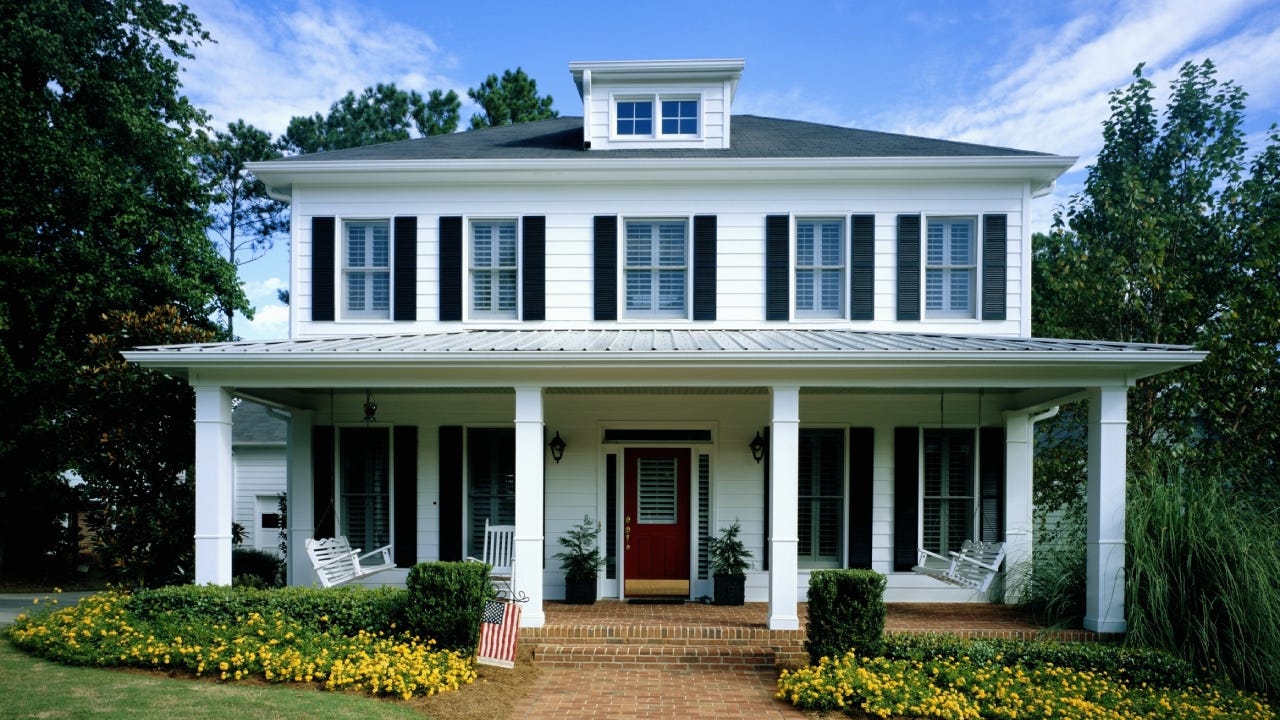Cost of selling a house in Georgia

The Peach State offers numerous appealing features for homebuyers, including a relatively affordable cost of living and lower home prices than many other East Coast states. But selling a home is not 100 percent profit: Before listing your Georgia home in the hopes of an easy deal, it’s crucial to consider expenses associated with the selling process.
Here’s a deep dive into how much it costs to sell a house in Georgia, including closing costs, real estate commissions and more — as well as tips for reducing your costs.
Sellers’ closing costs
Sellers in Georgia, as in any state, need to be ready for closing costs, which are the various expenditures linked to completing the sale. Based on the latest information from ClosingCorp, the average closing costs in Georgia amount to approximately 1.3 percent of the home’s sale price (excluding real estate commissions). The median sale price for a home in the state was $350,000 in January 2024, according to data from Georgia MLS Real Estate Services. That would make the average closing costs in Georgia around $4,550 — however, that entire sum is not borne by the seller.
Here are some of the most common closing costs for sellers in Georgia:
- Transfer taxes: Sellers are typically responsible for the cost of real estate transfer taxes, the fee associated with transferring ownership of the home to the buyer. In Georgia, the rate is $1 for every $1,000 of value. Therefore, for a median-priced $350,000 sale, you would need to pay approximately $350.
- Legal fees: Unlike many states, the state of Georgia requires the presence of a licensed attorney at closing. The closing attorney is typically chosen by the buyer, but the seller may want to engage their own lawyer to safeguard their best interests. Legal fees will vary based on the transaction and are payable at closing.
- Title-related fees: Sellers may also cover expenses such as the cost of a title search and title insurance, which protects against other ownership claims. However, these costs can vary depending on the specifics of the transaction.
- Escrow fees: You may be charged an escrow fee for the management of transaction funds. This cost can vary, but it is often negotiable, allowing you to potentially split it with the buyer.
- Prorated property taxes and HOA fees: Sellers are obligated to cover their portion of property taxes for the duration of their ownership, right up until closing day. If the property is part of a homeowners association, the same holds true for HOA fees.
- Concessions: Despite generally favorable conditions for sellers in the Georgia housing market, it is still possible to make concessions to buyers (such as offering to cover a necessary repair) to enhance the deal. Sellers don’t have to agree to a buyer request, but it’s very common.
Real estate agent commissions
In a real estate transaction, both the buyer’s agent and the seller’s agent receive a commission, and it is the seller who covers these payments. While agent commissions are often open to negotiation, they typically fall within the range of 5 to 6 percent of the home’s sale price. For a Georgia home with a median price of $350,000, a commission rate of 5.5 percent would amount to $19,250.
It’s important to note that home prices vary across different regions of Georgia. In Atlanta, for example, the median sale price for January was $373,750, more than $20,000 higher than the statewide average. A 5.5 percent commission on this higher-priced home would be $20,556.
Preparation and moving costs
Preparing to sell your house requires thorough planning and financial foresight. To enhance the property’s appeal to potential buyers, you may choose to invest in minor repairs, staging, professional photography and professional cleaning, among other considerations. Recognize the significant impact of a positive first impression — it can encourage buyers to make offers more promptly. There are several affordable ways to boost curb appeal, such as cleaning windows, adding flowers or even just painting the front door. Your agent can provide guidance on what would be most beneficial in your specific situation.
Additionally, when you sell your home you’ll need to get all your stuff out of there, so don’t forget to budget for the cost of moving. This cost will vary greatly depending on how big the home is, how many boxes and items there are to move, how much it all weighs and how far you’re bringing it. Long-distance moves will cost significantly more than local ones, and seasonality matters, too: The same move will usually be cheaper in winter than it is in summer. And if you’re selling your house while also buying another, you may have to move twice — once into temporary housing and again into your new home when you close.
How much do I get from selling my house?
Your net proceeds will vary considerably based on numerous factors, such as the home’s final sale price, the remaining balance on your mortgage and the overall total of your closing costs. Add up all those costs, then subtract the total from your home’s final sale price to determine how much you’ll actually get from the sale.
If your home, like many properties in Georgia, has undergone significant appreciation in recent years, you may realize a substantial profit. If the dollar amount is high enough, it may trigger capital gains taxes, which would be another expense. Double-check with a tax professional if you’re not sure.
Reducing costs for home sellers
Sellers have various strategies at their disposal to potentially reduce their costs. Here are some options to consider:
- Negotiate a lower real estate commission. The difference between paying 5 percent and 6 percent could save thousands of dollars.
- Contemplate an “as-is” listing: Selling as-is means not having to invest money in repairs, upgrades or staging. This might be an especially good choice if the property is not in pristine condition.
- Shop around: Explore different service providers, like attorneys and title insurers, to secure the most favorable deals.
- Be honest with your agent: Be upfront about your desire to save money. A savvy agent can identify the most cost-effective methods for promoting your property and help you decide what’s worth spending on and what’s not.
Alternatives
Instead of following the conventional selling route, consider exploring these alternatives for potential savings:
- FSBO sale: A for sale by owner listing means marketing and selling your property independently, bypassing the need for a listing agent and thereby not paying a listing agent’s commission. However, you’ll still need to pay your buyer’s agent.
- Cash buyers or iBuyers: Companies that buy houses for cash typically offer quick deals with no commission fees. Major iBuyers like Opendoor and Offerpad operate in the Atlanta area, and there are numerous local “we buy houses” companies throughout the state. Keep in mind, though, that the prices offered may not be as high as in a traditional sale.
- Home equity: If you have built up a lot of equity in your home, you may be able to access the cash you need by tapping into your home equity through a loan or line of credit, rather than selling outright.
- Renting it out: If you can afford not to sell immediately, becoming a landlord and renting out the property is also an option. This can provide a steady source of income over time.
Next steps
If you’ve done your research and you’re ready to sell, enlist the services of a local real estate agent. Look for someone with a deep understanding of the market conditions in your Georgia town — and ideally, your specific neighborhood. An agent’s professional expertise can help you sell your house for the highest price and at the lowest cost to you.
FAQs
-
The majority of your expenses as a seller will be in the form of real estate commissions, usually ranging between 5 and 6 percent of the home’s sale price. The current median sale price of a Georgia home is $350,000, so a commission rate of 5.5 percent would amount to $19,250. Other typical closing costs for sellers include transfer taxes and title and escrow fees.
-
Yes. You don’t necessarily need a real estate agent to sell a home in any state — going without one is called “for sale by owner,” or FSBO for short. But keep in mind that managing a property sale independently entails a significant amount of work and a big time commitment.
Why we ask for feedback Your feedback helps us improve our content and services. It takes less than a minute to complete.
Your responses are anonymous and will only be used for improving our website.






